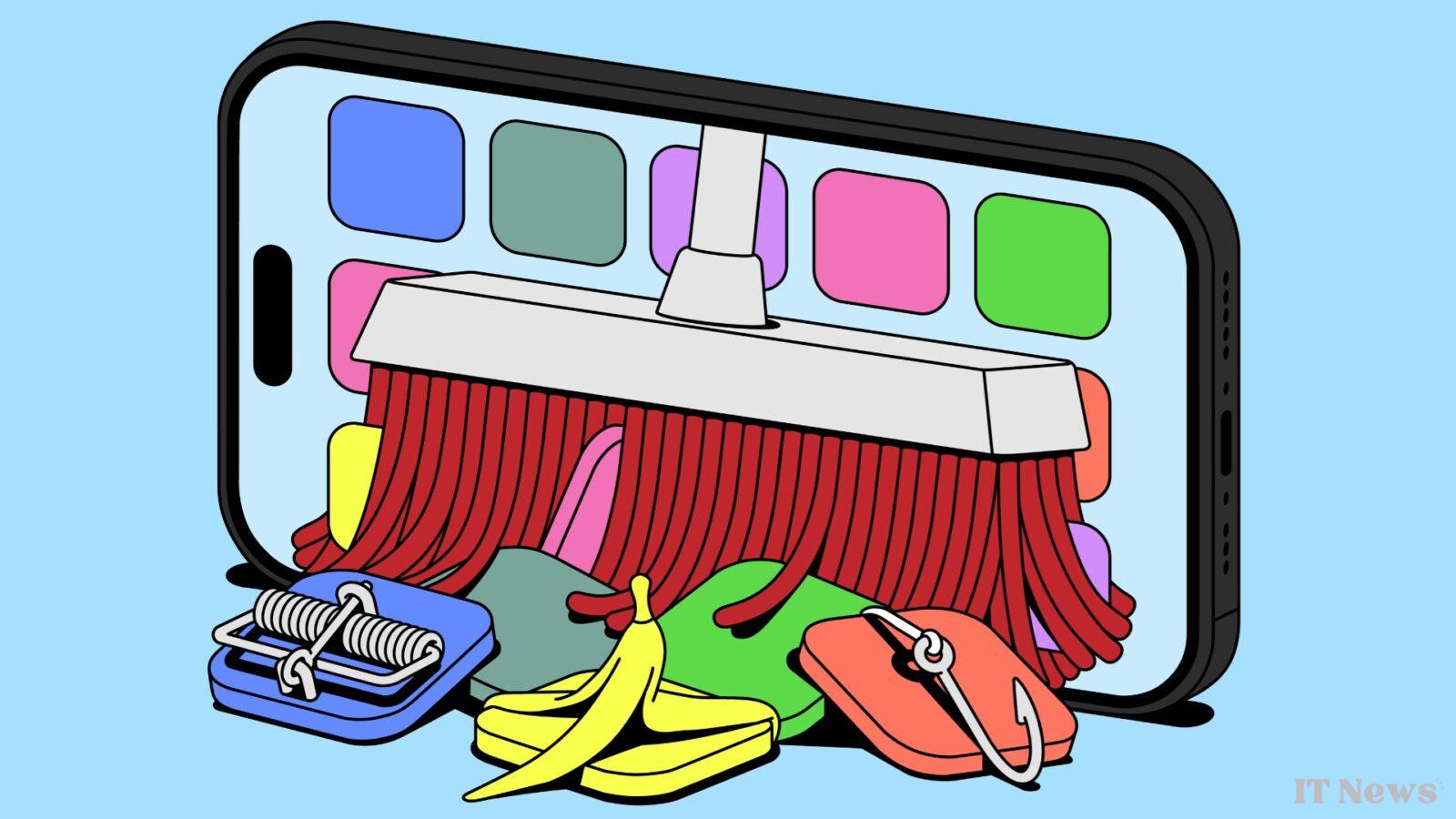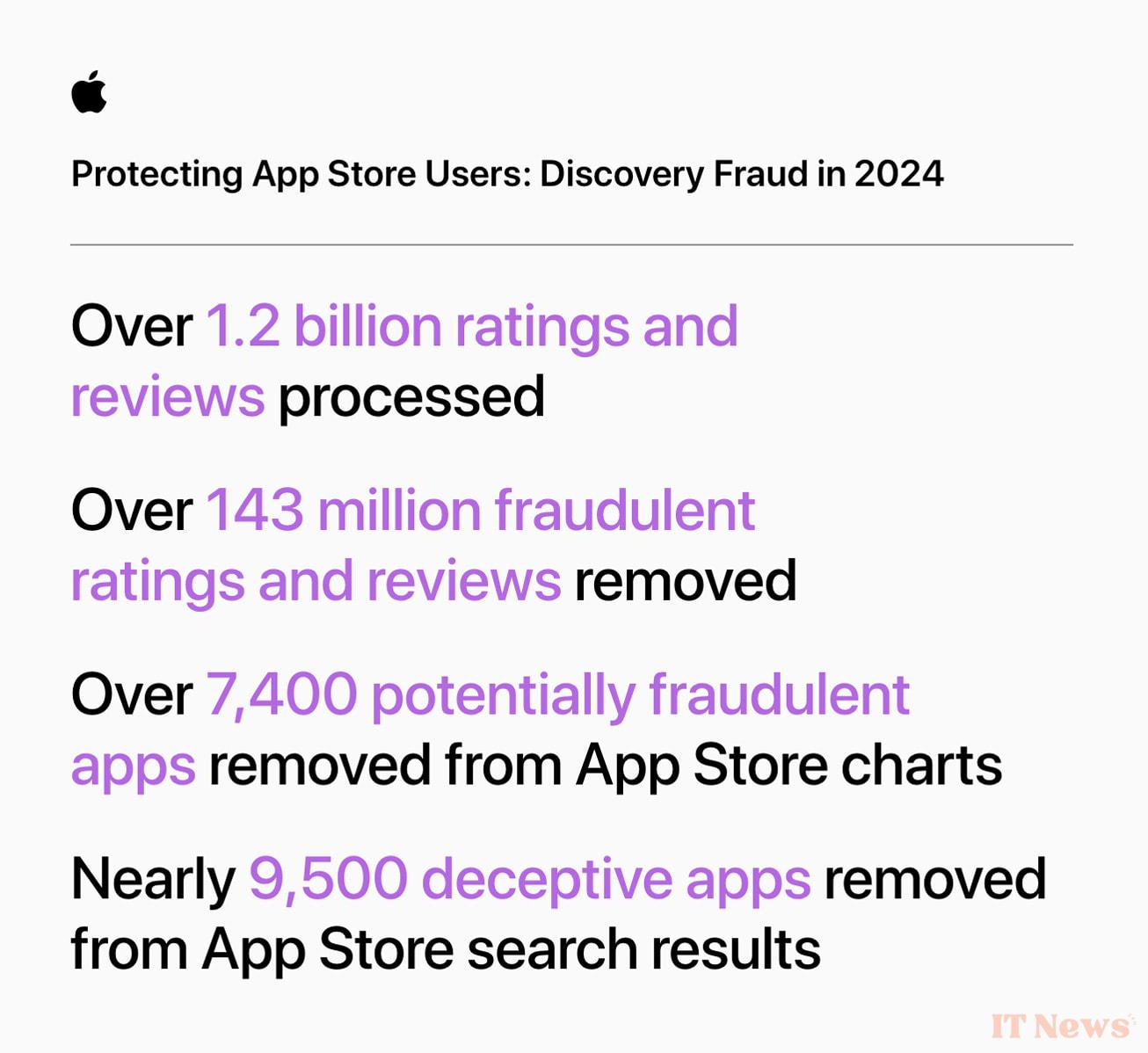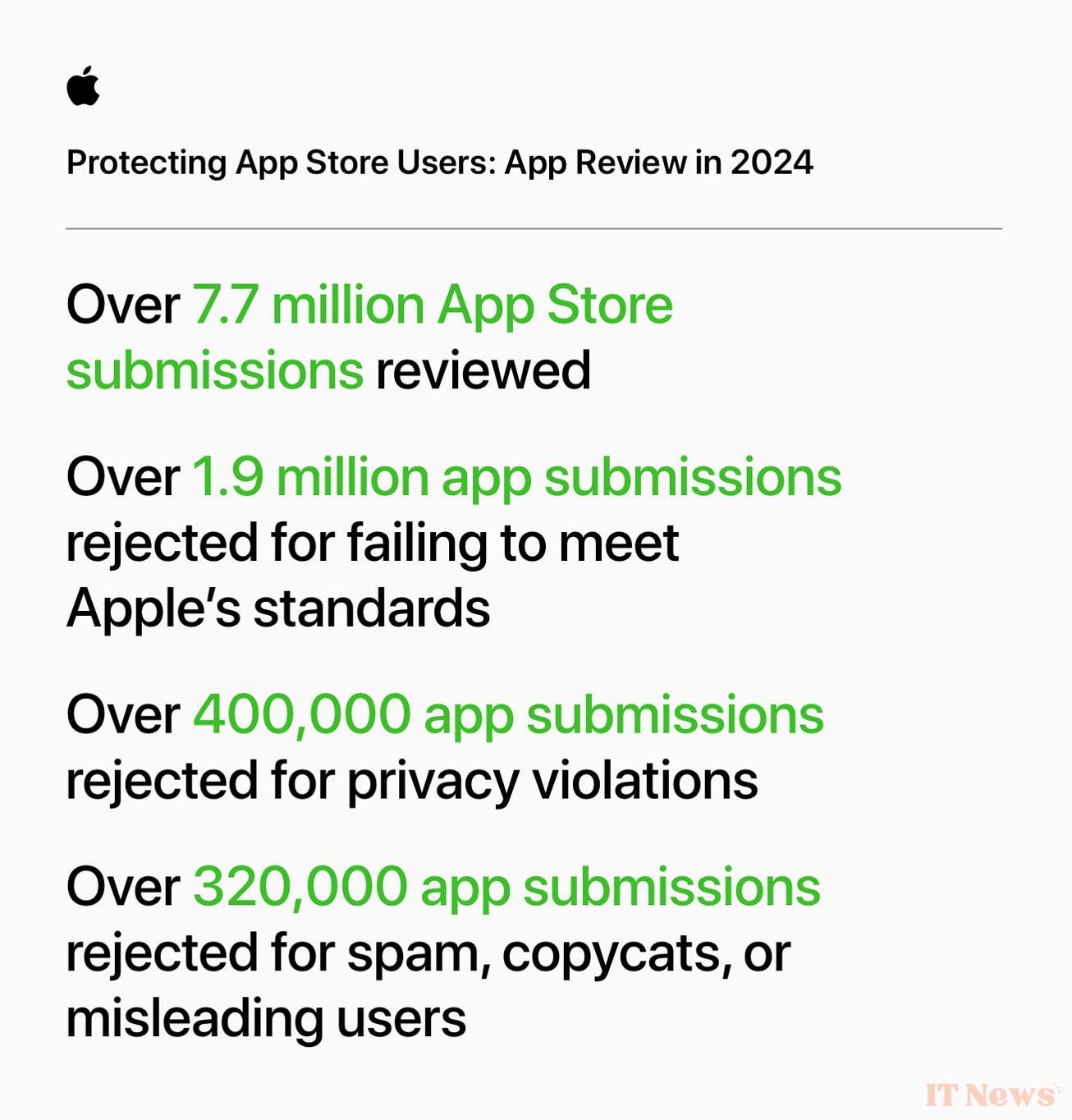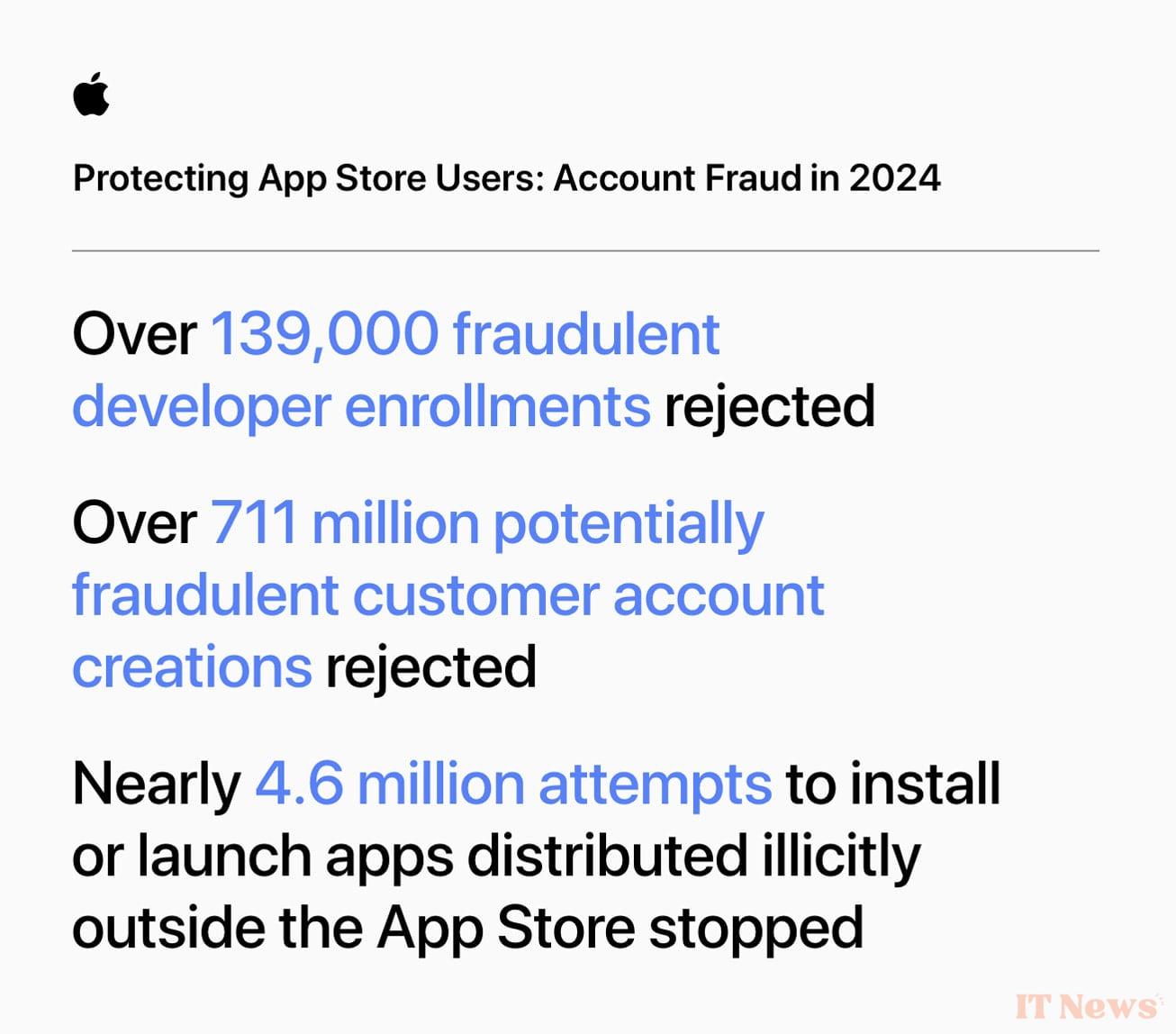Besieged on all sides by regulators and the courts, Apple regularly reminds everyone of the App Store's raison d'être: to ensure the best possible security for consumers. The manufacturer, which will open its World Wide Web Developer Conference (WWDC) on June 9, has published—as it does every year—a report on the efforts made to prevent scams from proliferating in the store.
Why Apple continues to cling to its closed model
Apple thus assures that last year, the App Store prevented 2 billion fraudulent transactions, or 9 billion over the last five years. The store, which has more than 813 million visitors per week (!), has rejected 711 million potentially malicious account creations and deactivated 129 million active ones. These accounts spam and manipulate rankings, reviews, and search results.
App Store enforcement teams, aided by automation tools, removed more than 37,000 apps last year for fraudulent activity. That sounds like a lot, but it's a drop in the ocean when you consider that each week, 150,000 apps and app updates are submitted for review by the store.
Apple also rejected more than 43,000 app submissions containing hidden or undocumented features, and more than 320,000 submissions that copied other apps. These are considered spam or otherwise misleading users. More than 17,000 apps have been removed because, beneath their harmless appearance, they hid potentially risky features.
Apple also highlights its efforts to secure payments made on the App Store. In 2024, the company claims to have prevented the use of 4.7 million stolen bank cards and banned more than 1.6 million accounts suspected of fraud. Thanks to technologies like Apple Pay and StoreKit, card numbers are never shared with developers, limiting risks. The firm emphasizes the robustness of its payment infrastructure, touted as an additional bulwark against scams—which is no small feat given the current regulatory environment.
The group also emphasizes the dangers associated with apps distributed outside the official channel. Apple claims to have blocked 10,000 apps from pirate stores, often riddled with malware, pornographic content, or gambling. Nearly 4.6 million attempts to install these apps were reportedly stopped. A strong argument to justify the company's distrust of sideloading, which it is nevertheless obliged to tolerate in Europe.
All this is well and good, but current events regularly remind us that there are still holes in Apple's racket: crypto-stealing malware, apps that siphon off savings, malicious clones, pirated movie apps... The Apple company likes to present itself as a bulwark against scams, and uses this as the main argument of authority to prevent the emergence of an alternative offer.
But the company can do nothing against court decisions or regulations, which force it to open its ecosystem. We saw this again recently, with this very harsh judgment against the multiple schemes put in place to prevent developers from communicating freely with their users. Or, of course, in Europe which forces Apple to accept alternative stores.
Source: Apple






0 Comments